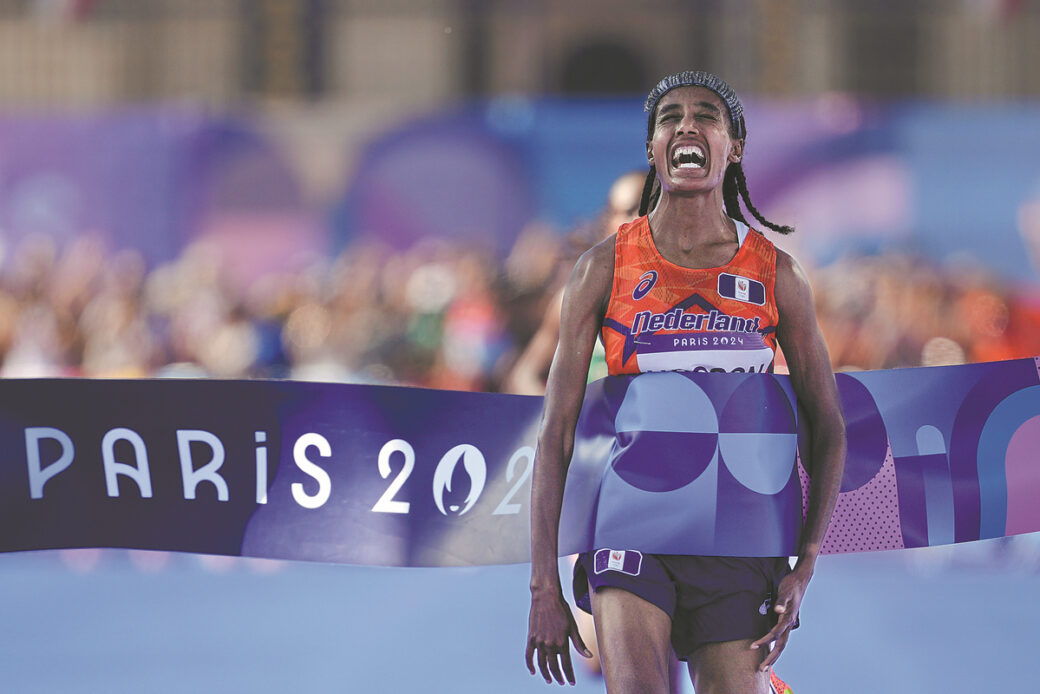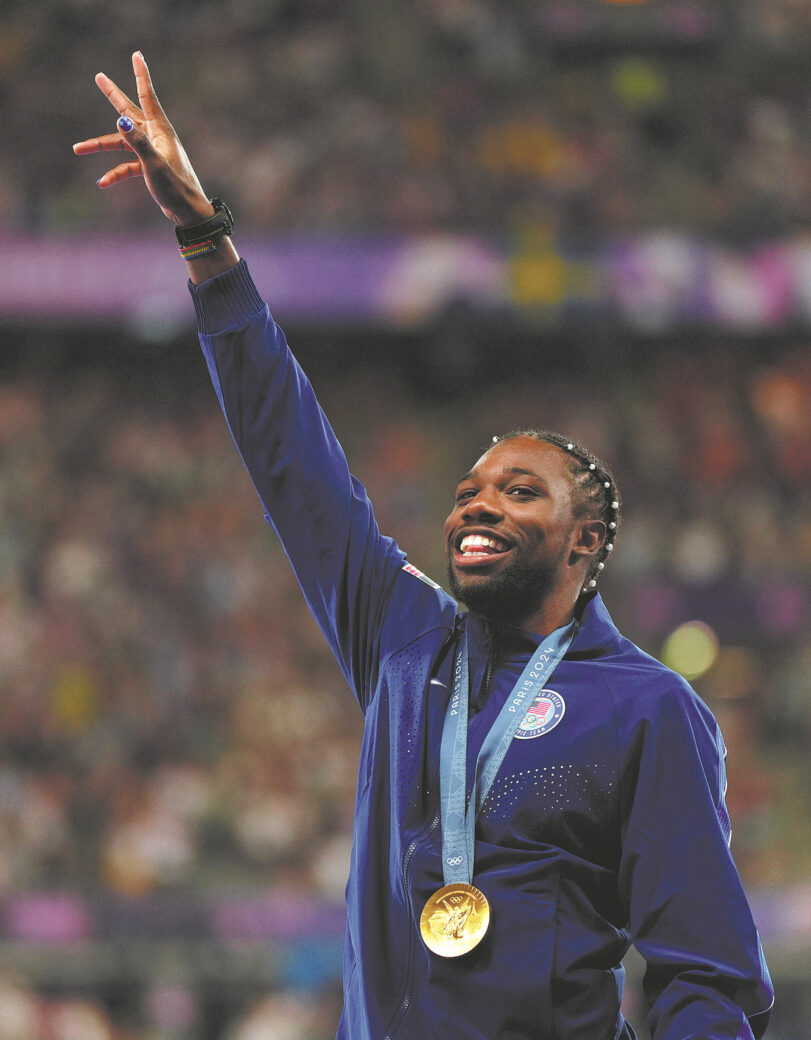
Sifan Hassan of the Netherlands celebrates after crossing the finish line to win the Paris 2024 Olympics women’s marathon gold medal on Sunday.
The Olympic athletics program, highlighted by the shortest event and then the longest, saw performances of astonishing quality and spine-tingling drama, played out to a beautiful and unique purple backdrop that will forever mean Paris.
The closest and highest quality men’s 100-meter race and a late-night pole vault world record lit up the first week, while Sifan Hassan’s final-day marathon win, to cap a barely believable hat-trick of medals, was a fitting way to bring down the curtain.
“It’s been fantastic and I think the quality of athletics at the moment is almost beyond description,” Sebastian Coe, head of World Athletics said this week.
“I can’t remember a time when we’ve had such a bandwidth of excellence.”
Nowhere was that more visible than in the men’s 100m, where Noah Lyles caught Kishane Thompson on the line to win by five thousandths of a second in 9.79. The six men behind them also ran a sub-10 second 100m — the first time that has happened in a legal race.
Lyles, the sport’s biggest showman, was unable to double up, taking bronze in the 200m, and then revealing he was running with COVID. Instead, Botswana’s quiet assassin Letsile Tebogo became the first African to win it.
The United States delivered a world record in the rarely-run mixed 4x400m relay, but Sydney McLaughlin-Levrone’s obliteration of her own world record to win the 400m hurdles was of a different magnitude.
Mondo Duplantis also beat his own pole vault world record in a moment of great theater at the Stade de France. With all other events finished, and the Swede’s expected gold long pocketed, he failed twice at 6.25m before sailing clear to a stupendous roar.
Coe hoped the men’s 1,500m would be a “race for the ages” and it was — though not in the way he or anyone else expected.

Briton Josh Kerr ran the race of his life to get past defending champion Jakob Ingebrigtsen, only for long-shot, American Cole Hocker, to come past them both and win with a huge personal best to produce one of the biggest upsets of the Games.
Ingebrigtsen bounced back to win the 5,000m, while in the women’s 1,500m, Kenya’s peerless Faith Kipyegon completed an unprecedented hat-trick.
Medals galore over the shorter distances has usually been the norm for the US, but it found remarkable success in all sorts of events in Paris.
When Yared Nuguse took bronze behind Hocker, it was the first time in 112 years that two Americans had medaled in the 1,500m.
Grant Fisher went toe-to-toe with the mighty Africans to win impressive bronze medals in the 5,000m and 10,000m while Kenneth Rooks did the same for a notable 3,000m steeplechase silver.
After relatively slim pickings in Tokyo, the US was back in charge, with 14 gold, 11 silver and nine bronze medals to set it up for hosting the next Games in Los Angeles.
In contrast, Jamaica had a torrid time, barely featuring in the sprints it has dominated for years, and its solitary gold medal was a shock discus win for Roje Stona.
The host also had a campaign to forget, despite the nightly roars of support from fantastic fans who filled every session.
It was saved from a total wipe-out by Cyrena Samba-Mayela’s silver in the 100m hurdles on the final night of track action.
There was still one more event to go, however, and it provided a fabulous, and scarcely believable, finale, as Dutchwoman Hassan won the women’s marathon after taking bronze in the 5,000m and 10,000m.
She was the first woman to even attempt the treble, let alone medal in all three, and now stands alongside athletics royalty in the shape of Emil Zatopek, who won all three in 1952.
Forty-three countries won athletics medals, with Saint Lucia, Dominica and Pakistan doing so for the first time, all golds, via Julien Alfred in the women’s 100, Thea LaFond in the women’s triple jump and Arshad Nadeem in the men’s javelin.



